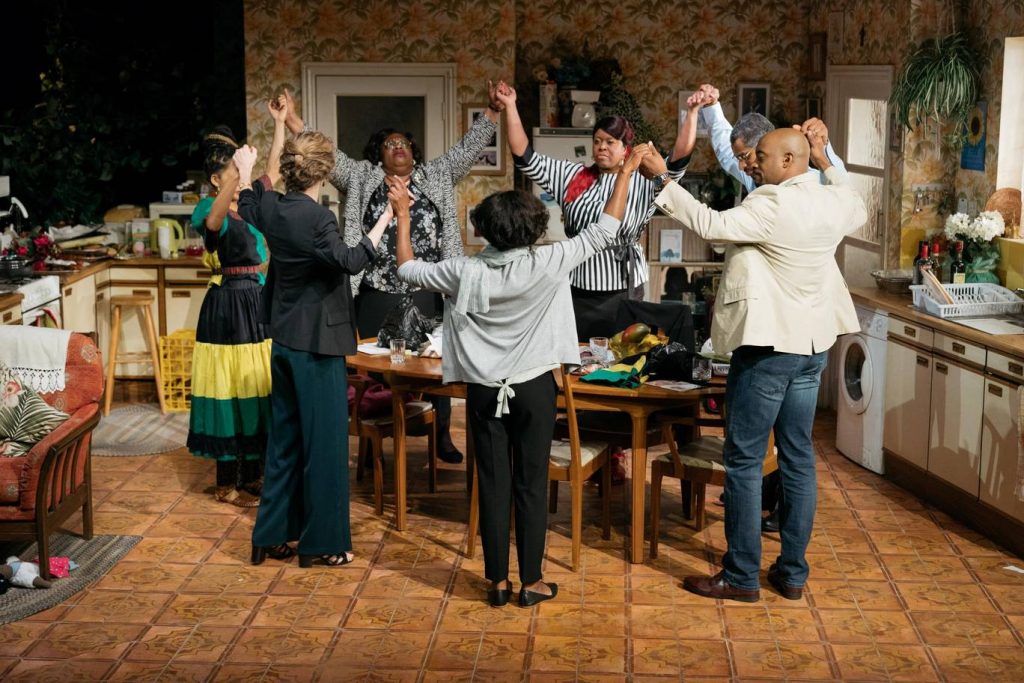Natasha Gordon’s sensational depiction of Caribbean culture and how it resides within the UK.

Natasha Gordons’s debut production Nine Night perfectly sums up the key properties of black British culture and generational cohesion despite the differences between the two cultures. The play gives off a similar feel to the 1989 comedy Desmond’s, portraying beauty in the mundane Caribbean lives. It follows the generational and cultural conflicts between a family preceding the death of Gloria, their beloved mother, sister and grandmother during her somewhat traditional Nine Night celebration in England.
On first glance the play may not give away much, convincing the viewer that it will be nothing but an onstage party full of salt fish patties and Wray and Nephews, which is not completely false. However, as the play goes on we are shown a complex intricate story that unfolds beautifully reaching climax after climax to portray the raw rollercoaster of the grief that families face after the death of a loved one. As a second generation black British/Caribbean woman, countless times during the play I was brought to tears due to the similarities and comparisons I could make between the on-stage family and my own, bringing back the nostalgia of my own grandmothers nine night.
Without giving too much of the plot away, while being incredibly funny the play tackles some key issues and aspects of Caribbean culture. A surprising aspect shown is the importance of spirituality within Caribbean culture demonstrated by the characters who believe in the supernatural and religion . This idea of spirituality is manifested through the character Aunt Maggie (Cecilia Noble) who we see burst into gospel during a family disagreement and free the spirit of Gloria in the intense finale.
Cecilia Noble steals the show reflecting pure authenticity in her role with hilarious but true one liners such as “de only decent ting me get from dis teefing government” when regarding the use of her freedom pass (which may or may not be Gordons’s response to the 2018 windrush scandal). Her on stage partnership with Trudy (Michelle Greenidge), Gloria’s oldest daughter and blast from the past gives the play a refreshing tension breaker between some very difficult scenes allowing for a beautiful transition enabling the play to move smoothly.
Alongside the main plot of the play we see the character’s own personal struggles tackling issues such as interracial relationships when in laws disagree (“caffe latte” being used to describe a mixed raced child although funny, had a gaspworthy shock factor coming from a white woman), greed and infidelity which all tie up nicely at the end with a message from Gloria herself no one could have predicted.
Nine Night is what I hope to be the beginning of black theatre on the main stage, it portrays Black British lives in a new positive light moving away from the typical depictions of knife crime and gun violence. Plays with these themes can be a great insight into the lives of black people who do face those issues but it often criminalises black lives as it depicts knife crime and gun violence as our norm which plays into the hand of unhealthy stereotypes. Personally, as a black woman I have never resonated so closely with a play to the point of both happy and sad tears.
Nine Night is showing at Trafalgar Studios until 23rd February 2019
Rating: ????


